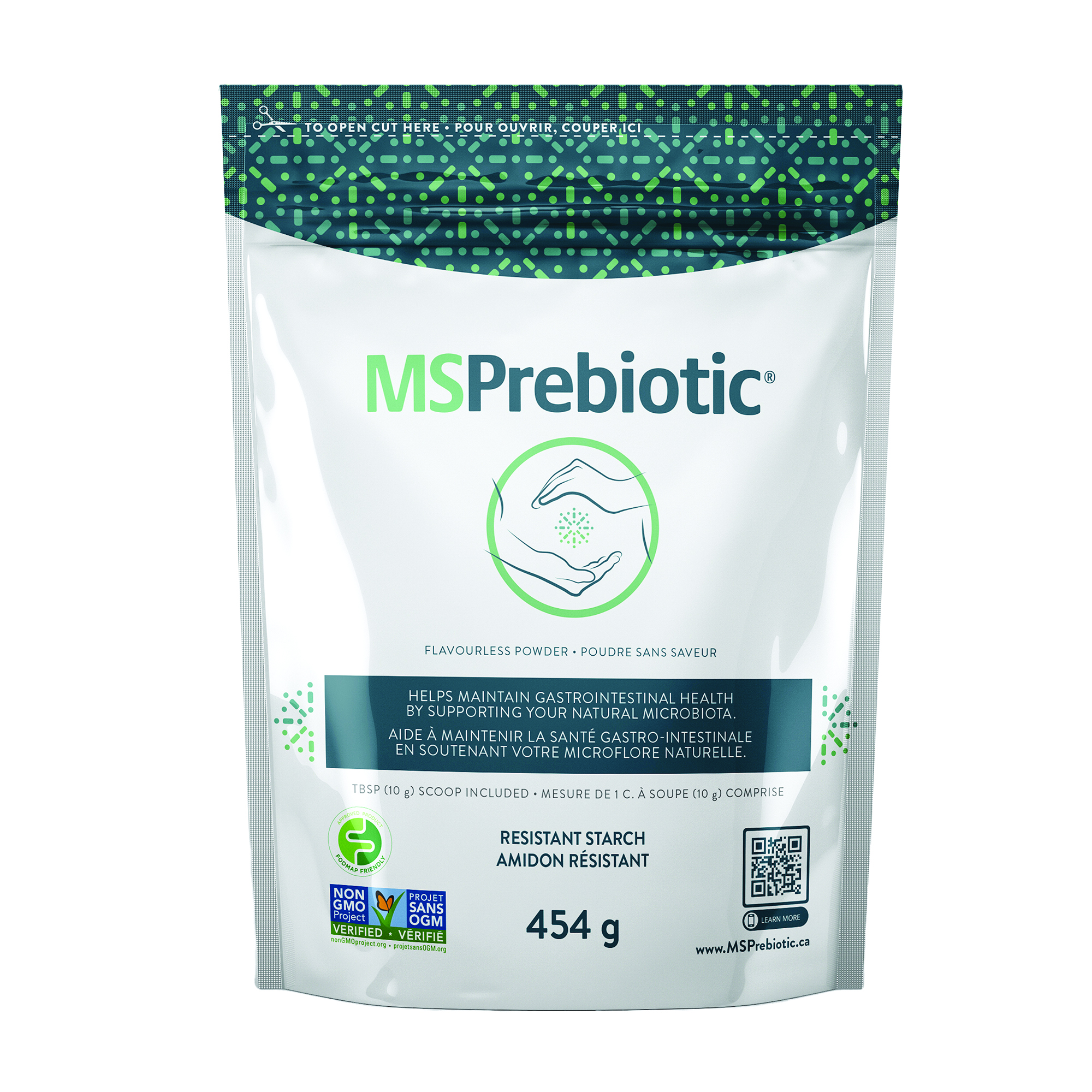Table of Contents
Fatty Liver Disease is the most common liver health concern in North America with the latest estimates suggesting that 1 in 3 adults are living with a fatty liver.
Despite quite a rampant increase in its medical relevance, there is currently no pharmaceutical treatment option for this condition.
People living with a fatty liver have three primary ways to fight back:
1. Being More Physically Active
2. Optimizing Their Diet
3. Strategically Using Supplements
I’ve spent a great deal of my time as a professional studying all aspects of preventing and managing fatty liver disease, including publishing a book on the subject matter and working with a large volume of clients on improving their liver test scores.
One of the other topics I’ve been exploring with great interest, via my work with MSPrebiotic, is resistant starch.
Resistant starch is a unique type of fibre supplement that has been demonstrated to reduce both insulin resistance and levels of unhealthy bacteria in the GI tract.
Insulin resistance and gut bacteria imbalances are two major contributors to fatty liver disease, so you can only imagine my excitement when the acclaimed Cell journal brought the science together in a study published earlier this month which demonstrated that resistant starch supplementation improved liver health in people living with fatty liver disease.
Let’s take a closer look at what they found.
Resistant Starch & Liver Health
A quick note before we dive in:
There are four different types of resistant starch, the type used in this particular study is referred to as type 2 (sourced from corn in this study).
The type of resistant starch found in MSPrebiotic is also type 2 ( sourced from potato).
Keep in mind that type 2 resistant starch is very difficult to get in large amounts from commonly available foods and generally accessed in supplemental form.
Here’s What Was Done
There were just under 100 adults in both the control and experimental groups
The experimental group was provided 40 grams of a type 2 resistant starch supplement daily over a 4-month period.
Compared to the control group, the individuals provided the resistant starch supplement experienced a 9% reduction in the amount of liver fat ( also known as IHTC).
There was also a decrease in a specific species of unhelpful bacteria Bacteroides sterocorsis which is commonly found in higher levels in those with more stored liver fat and higher liver enzyme levels.
Both liver enzymes and insulin sensitivity also improved in the resistant starch vs control group.
An Intro To MSPrebiotic
The groundbreaking study discussed in today’s blog post merits excitement because resistant starch supplementation acts directly on risk factors for fatty liver disease ( dysbiosis, insulin resistance) and seemingly on the condition itself (by reducing liver fat storage and liver enzyme levels).
Although more research in this area will be required to draw firm conclusions, early signs show promise for the role of resistant starch supplementation as one piece of a necessarily broad approach to managing and reversing this common condition.
MSPrebiotic has been kind enough to offer my readers a discount code, which you can find below:
ANDYRD for 15% off until December 31st and NEW2MSP for Free Shipping on your first order (use together, click image below!)



More Stories
The One Thing You Should Never, Ever Do if You Have Insulin Resistance and Want to Lose Weight
Tuna Salad Lunch Box – JSHealth
Advanced Wellness Course – Heart Health